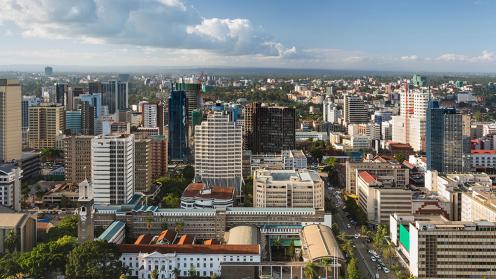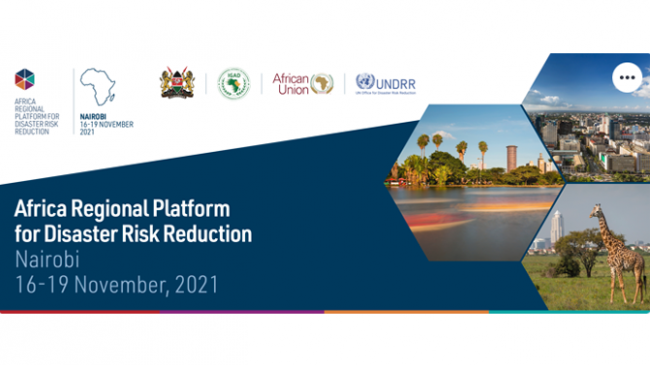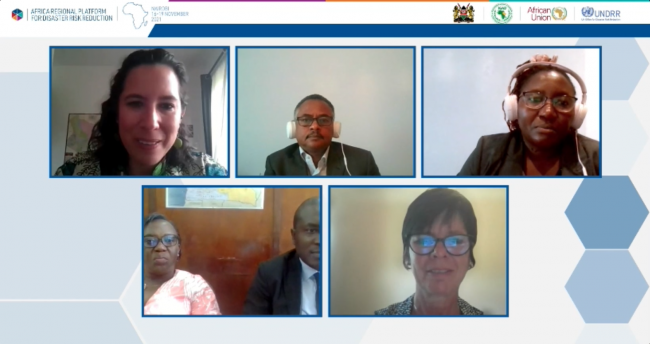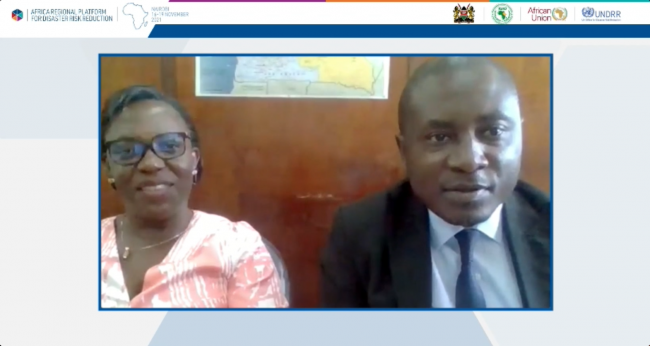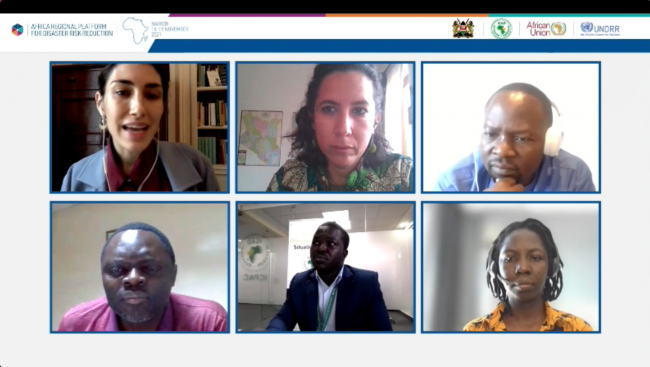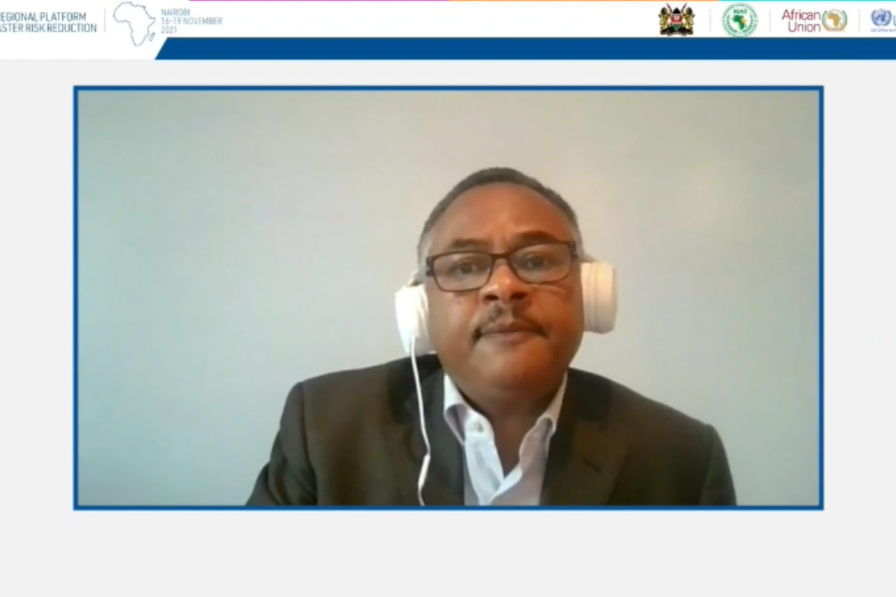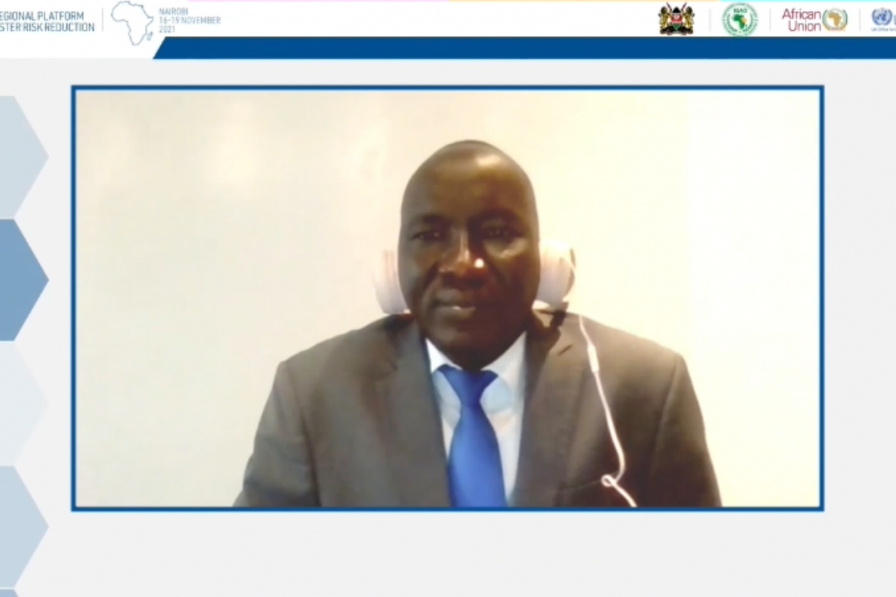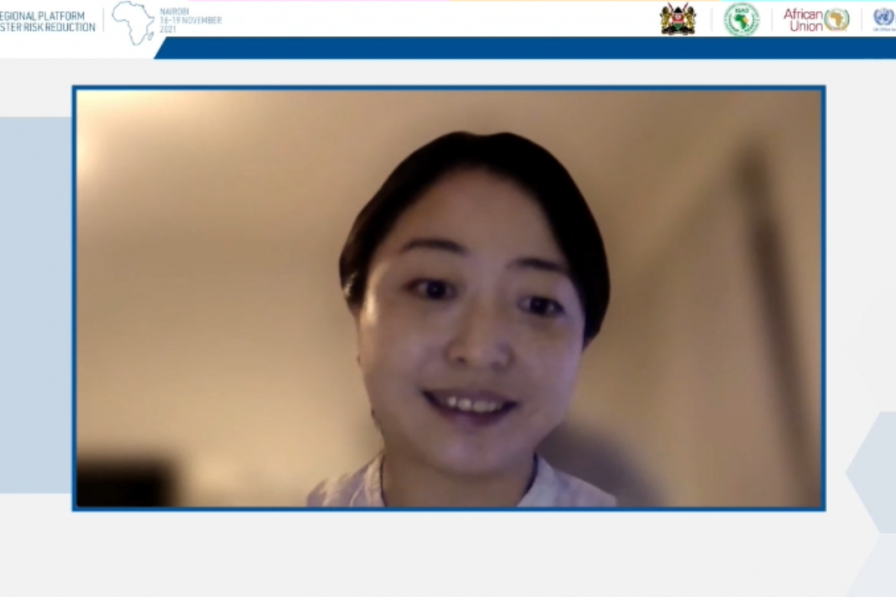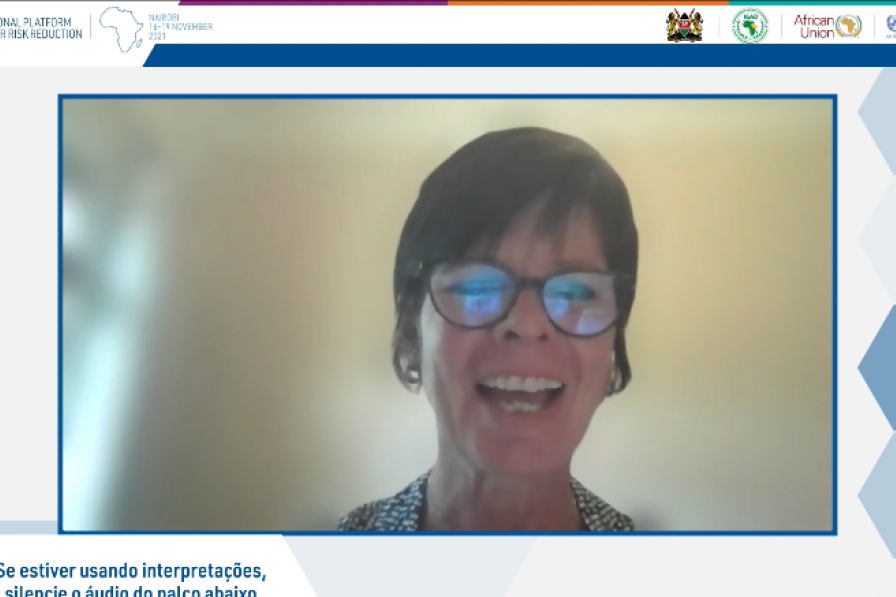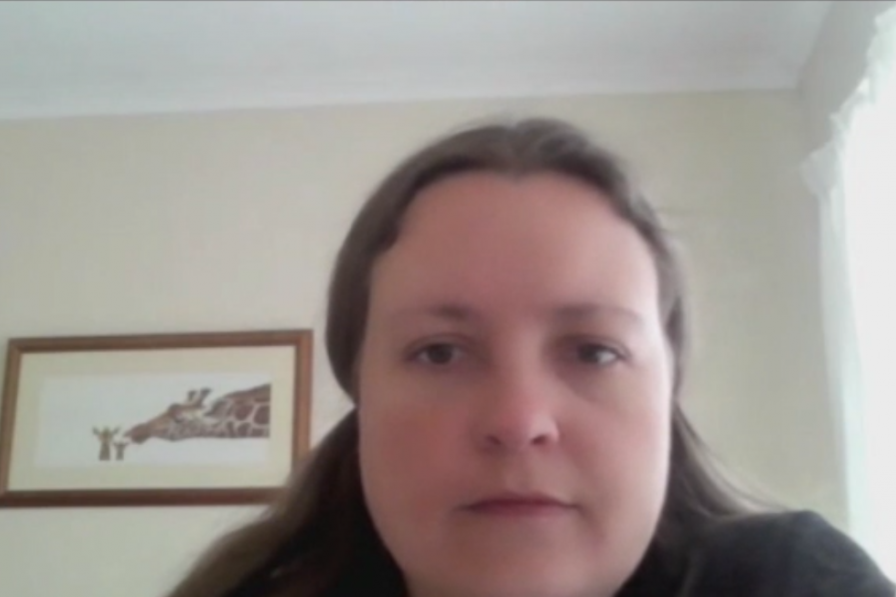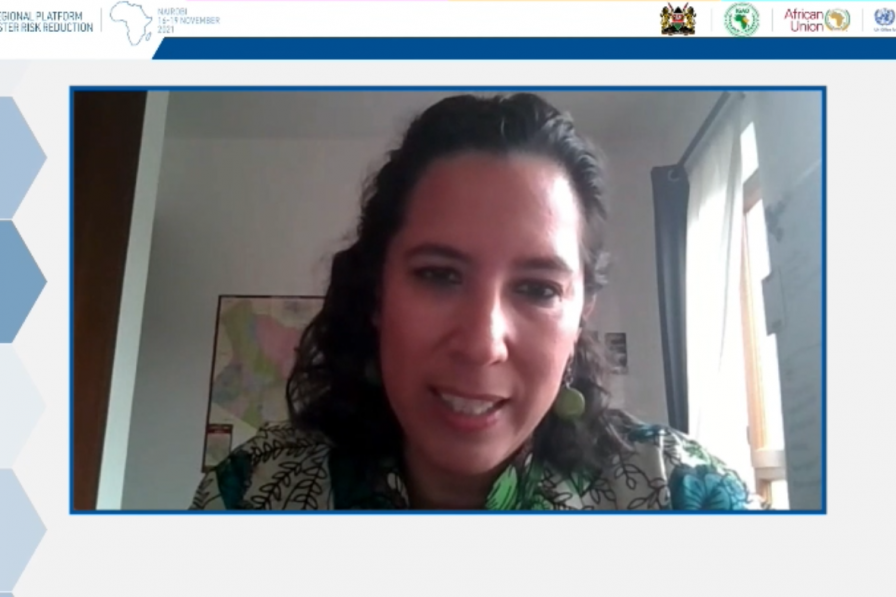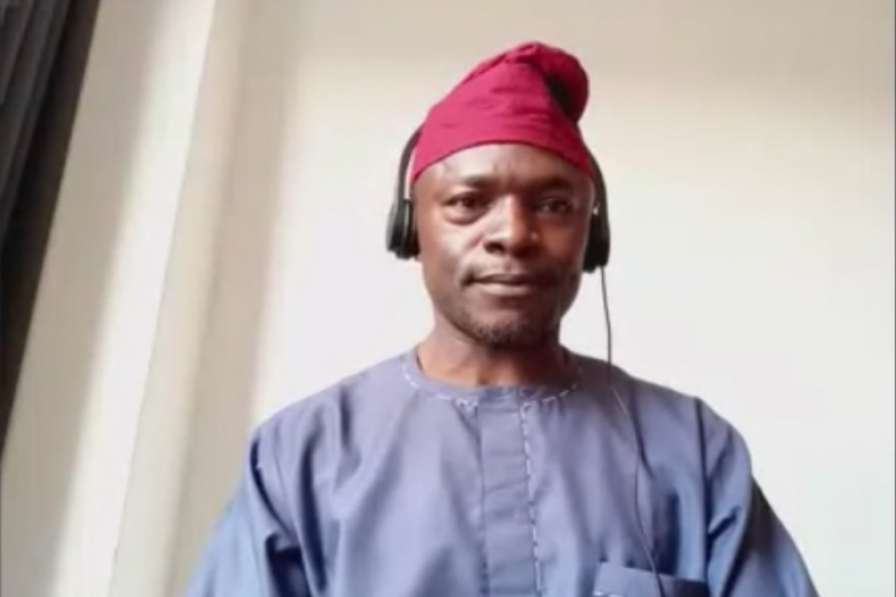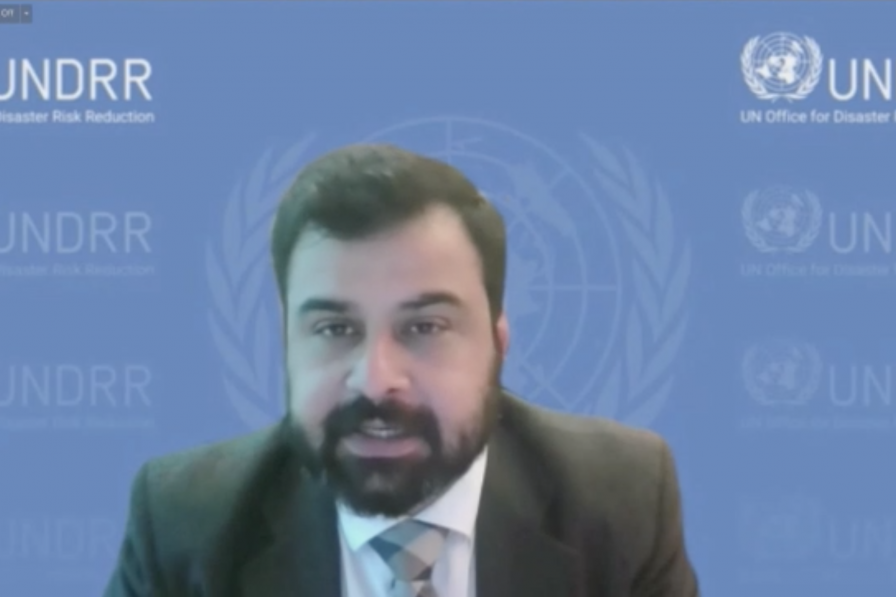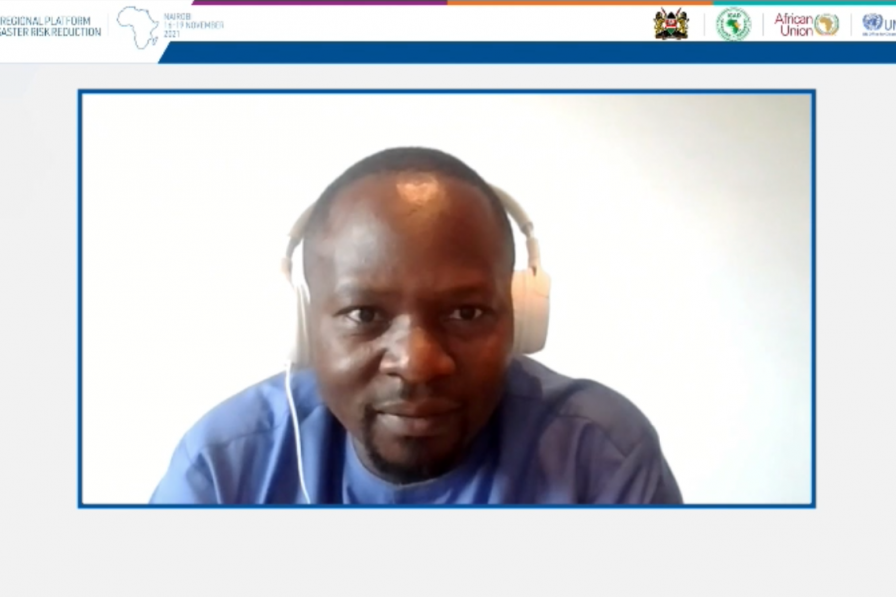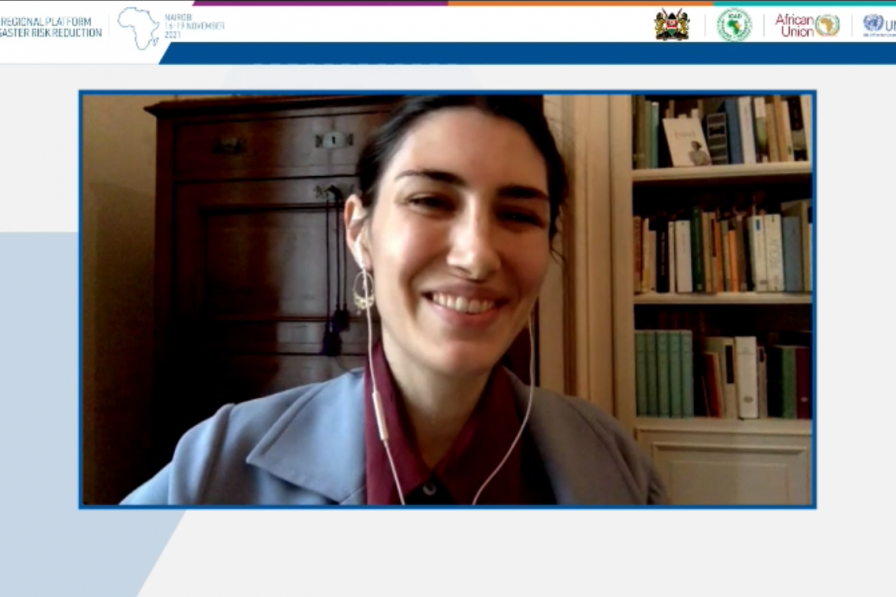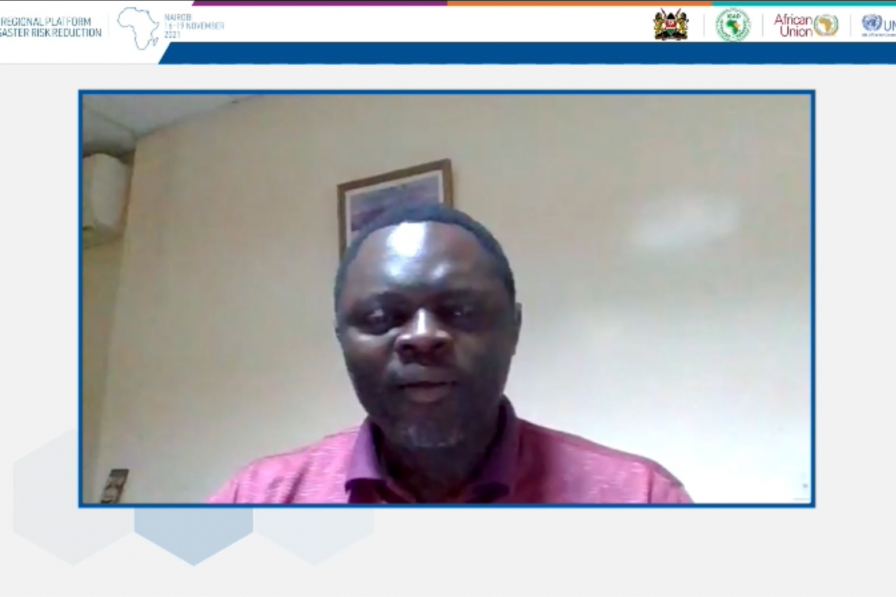With a series of pre-conference and side events on topics, including the mid-term review of the Sendai Framework for Disaster Risk Reduction (DRR) 2015-2030 and efforts to scale up DRR in humanitarian action, the Eighth Africa Regional Platform for Disaster Risk Reduction commenced on Tuesday, 16 November. Presentations were also made on “Continental Watch” and “Event Situation Reports,” two products from the African Union’s Situation Room that aim to improve the hazard early warning system for DRR in Africa.
The session on the “Mid-Term Review of the Sendai Framework (MTR SF)” served as a first exchange on the MTR SF. Amjad Abbashar, Chief, United Nations Office for Disaster Risk Reduction (UNDRR) Regional Office for Africa, noted that countries are expected to initiate the MTR SF before the end of 2021, using a “whole of government” approach to conduct an inclusive and broad process throughout 2022. Marc Gordon, MTR SF, outlined the review’s objectives, including: taking stock of the implementation of the Framework from 2014-2023; assessing progress and challenges; highlighting new and emerging issues; and identifying changes in context since 2015.
In the session on “Sendai Framework Monitoring in Africa: Status and Way Forward,” Nomsa Dube, African Union Commission (AUC), presented on the Sendai Framework Monitor's Regional Module for Africa, an online platform to systematically report on disaster losses. She noted the regional module is part of operationalizing the monitoring and reporting framework of the Programme of Action for the Implementation of the Sendai Framework in Africa. To accelerate reporting, she urged countries to start with data entry using the module as soon as possible, and suggested annual data review workshops can help with institutionalizing DRR reporting at the regional economic commission level.
During the session on “Investing in Resilient Infrastructure,” speakers highlighted the importance of resilient infrastructure for achieving DRR in Africa. Atsuko Toda, African Development Bank Group, noted a lot of infrastructure is financed through public sector financing, and underscored the need to mobilize private sector financing. She underscored efficiency, accountability, and performance gains from ensuring the private sector is involved from the infrastructure design stage.
The session on “Making Cities Resilient 2030 (MCR2030): Cities and Partners Engagement in Africa'' focused on the MCR2030 initiative, which strives to ensure cities become resilient and sustainable by 2030. Isabel Njihia, Associate Programme Office, UNDRR Regional Office for Africa, provided an overview of the MCR2030. She highlighted the Resilience Roadmap, which offers a wide range of tools to support cities and local authorities, and stressed the journey for each is unique. She outlined the strategic objectives of MCR2030 and described the three stages of the resilience journey, moving from knowing to planning and, eventually, to implementing.
In the session “African Indigenous Knowledge Systems and Practices on DRR,” speakers focused on African indigenous and local knowledge (ILK) systems and practices on DRR. Kai Gatkuoth, Department of Rural Economy and Agriculture, AUC, stressed that recognized ILK systems mean local communities can partake in policy decision and implementation. Nalejileji Tipap, Pastoralist Indigenous NGOs Forum (PINGOs), highlighted indigenous women’s knowledge on weather forecast and climate change, describing the use of signs from the natural world, using species of trees, insects, birds, and animals as indicators. Joseph Karanja, Biodiversity and Ecosystem Services Network (BES-Net), UNESCO, contextualized the vulnerability of Indigenous Peoples and local communities (IPLCs) to disasters, noting they are “one of the most eco-literate and adaptive human beings.”
The session on “Gender and Disaster Risk Reduction/Management in Times of Covid-19” highlighted the impact of pandemics on women and girls. Tapiwa Uchizi Nyasulu-Rweyemamu, AUC, highlighted the need for, inter alia, gendered financial responses to COVID-19 and full inclusion of women as active citizens. Robert Agyarko, African Risk Capacity, called for preventive action, including: addressing structural inequalities that make women and children more vulnerable; innovative gender-responsive fiscal policies; and better disaster preparedness for health emergencies.
During the session on "Scaling up DRR in Humanitarian Action," speakers underscored the need for greater integration of DRR and disaster preparedness into humanitarian and peace-building efforts in Africa. In a keynote speech, Paola Albrito, UNDRR, stressed that “reducing disasters is everyone’s business,” urging humanitarian, disaster, and peacebuilding actors to work together and break down silos. Banak Joshua, Ministry of Humanitarian Affairs and Disaster Management, South Sudan, stressed that for humanitarian action and DRR to go hand-in-hand, actors must understand the needs and priorities of both national governments and the local communities they serve.
The session on "Africa Multi Hazard Early Warning System for DRR" included presentations on various hazard early warning products that aim to improve disaster information and preparedness in Africa, including: the African Union’s Situation Room and its two products: Continental Watch and Event Situation Reports; and the Intergovernmental Authority on Development (IGAD) Climate Prediction and Applications Centre and the African Monitor.
To receive free coverage of global environmental events delivered to your inbox, subscribe to the ENB Update newsletter.
